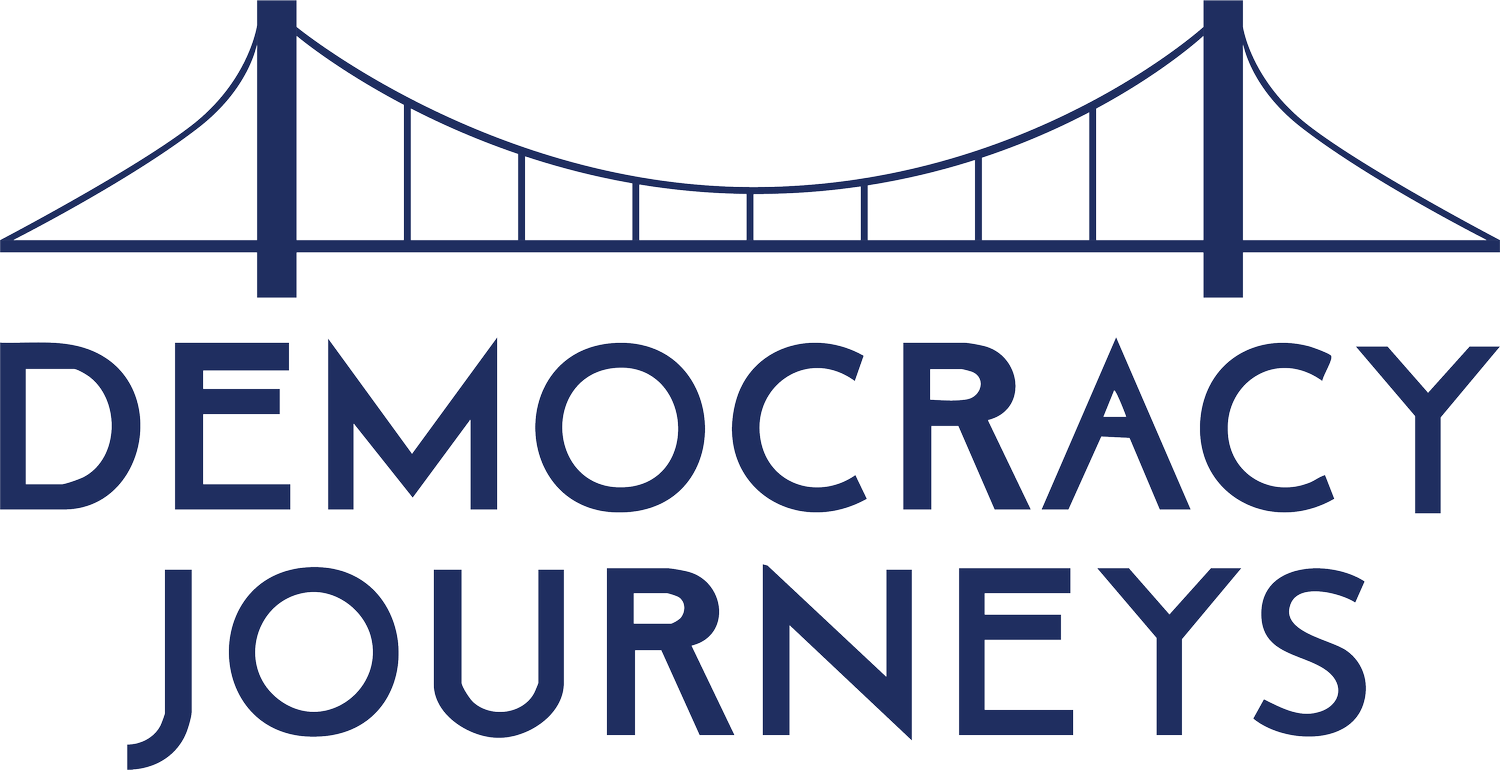Conversation with Sasho Ordanoski, PhD - Journalist, Thought Leader, and Educator
A voice that shapes the conversation - our Democracy Expert in North Macedona, Hristijan Gjorgievski sat down with Dr. Ordanoski to discuss North Macedonia’s democratic journey.
For more than four decades, Dr. Sasho Ordanoski has been one of the country’s most influential democratic voices. He began his career as a journalist in the mid-1980s and in the turbulent 1990s, when the country was carving out its independence from Yugoslavia and independent reporting was both rare and risky. His sharp analysis, fearless commentary, and ability to speak truth to power quickly made him a trusted household name.
As Editor-in-Chief of the Macedonian Public Broadcaster, he led the country’s most important media institution through a period when its role as a public service — and not a political mouthpiece — was being tested daily. Later, as Managing Director of Alsat-M, he oversaw one of the most dynamic independent TV stations in the Balkans, ensuring that diverse voices and critical journalism remained part of the national conversation.
Today, as a university professor, television commentator, and mentor to young leaders, Ordanoski continues to bridge the worlds of media, politics, and civil society. His story is not only about chronicling North Macedonia’s democratic evolution, but about actively shaping it — with words, ideas, and an unwavering conviction that democracy must be defended.
Meet Dr. Ordanoski!
Q1. Dr. Ordanoski, you’ve been one of the most recognizable voices in North Macedonia for decades. How would you describe your journey as a journalist and commentator?
Dr. Ordanoski: I began my career in the mid-1980s, when reporting under Yugoslavia meant walking a tightrope. Independent journalism was rare, and speaking truth to power carried real risks—but I was young and did not care much about the consequences. Yugoslav socialism was already “tired,” soon to be replaced by democracy. Through the 1990s, as we forged our independence, I witnessed how fragile free speech could be. Later, as Editor-in-Chief of the Macedonian Public Broadcaster, I defended its role as a genuine public service rather than a political tool of the governing parties. At Alsat-M, a bilingual Macedonian-Albanian commercial TV station, I worked to ensure that our inter-ethnic democratic reality was supported by critical and progressive voices, even when politics often pulled in the other direction. What I learned is this: democracy does not die in darkness—it dies in plain sight, under the shining sun, when open-minded debate is absent or incompetent in society.
Q2. You’ve mentored young leaders, founded Forum magazine, and advised international organizations from NATO to the World Bank. How do these roles shape your hope for Macedonia today?
Dr. Ordanoski: Founding Forum, a Macedonian version of a creative but an improbable cross-over between Vanity Fair and The New Yorker, was about creating space—space for nicely packed ideas, intriguing dissent, and deep conversation, which was rare in our society at the time. Mentoring young voices now, I see who will carry forward the push for accountability and transparency. And when I advise international bodies—whether it’s the EU, NATO, or the World Bank—it’s never abstract. I try to ensure decision-makers understand not just the laws or treaties, but the lived reality: for instance, that corruption is not only a political problem, it erodes trust, weakens safety, and undermines democracy itself; and its usually coming from the top, from the mighty oligarch and powerful politicians, before it spreads at the bottom.
Q3. What do you think best captures Macedonia’s democratic struggle today?
Dr. Ordanoski: The Colorful Revolution was a turning point. Citizens took to the streets and helped bring down an authoritarian government that had captured the state. That was a remarkable achievement—but it wasn’t the end of the story. Corruption remains a persistent problem, eroding institutions at every level and eating away at public trust. Democratic accountability, and the fight against the impunity of power, are still very much with us. You see it in many ways, sometimes horrifically so—as with the Kochani nightclub fire earlier this year, where 62 people lost their lives and nearly 200 were wounded. The tragedy exposed not only catastrophic lapses in safety and regulation, but also the deep skepticism people feel that anyone in power will truly be held to account. That grief quickly turned into anger because it felt preventable. That is our reality: democracy is not abstract; it is measured in how institutions respond—or fail—to protect their citizens.
Q4. For American travelers, why should Macedonia’s story matter? What parallels can you draw?
Dr. Ordanoski: The struggle is the same, even if the scale is different. The United States is an old and established democracy; North Macedonia is a young and fragile one. But the authoritarian playbook looks strikingly similar in both places: undermine trust in the media, politicize the courts, spread disinformation, divide people along identity lines, and hollow out institutions from within. In a small country like ours, the effects are immediate—you see whole systems wobble after one crisis. In America, the guardrails may feel stronger, but the erosion is no less real. That’s why our story matters: it’s a mirror, showing how vulnerable democracy can be, no matter its age, and why vigilance is needed everywhere. As President Reagan once wisely noted, freedom is never more than one generation away from extinction – and it seems this is the US generation being tested.
